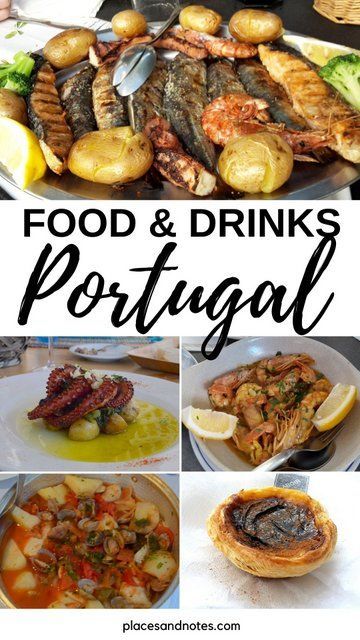Fogaça, from Santa Maria da Feira
Fogaça is a sweet bread original from Santa Maria da Feira in Central Portugal. The sweet bread is shaped like a castle with four keeps that alludes to the towers of the castle of Santa Maria da Feira. The sweet bread is crispy on the outside and fluffy on the inside and has a slight lemon and cinnamon flavor.
Fogaça is eaten all year round, but it is vital at the Fogaça festival on the 20th of January. On that day, there is a procession in which several girls carry fogaças on their heads.
The origin of this feast and procession dates back to 1505 when the region was affected by an outbreak of the plague. The people promised the martyr S. Sebastião the offer of fogaça if he helped to eliminate the plague. Since then, the procession of fogaças has taken place, which is distributed among the population at the end.
The fogaças are especially good warm and accompanied by a slice of cheese.

Subscribe to Portugal Things!
Get updates on the latest posts and more from Portugal Things straight to your inbox.
We use your personal data for interest-based advertising, as outlined in our Privacy Notice.
Pão de Deus
Pão de Deus (which translates directly to the bread of God) is a sweet bread covered with a coconut filling. The dough is typical of sweet bread, and the filling is made with coconut, sugar, eggs, and butter. Generally, Pão de Deus is the size of small brioches, but it can exist large in the form of a cake.
This recipe is not associated with Easter and is currently eaten at any time of the year and can be found in any Portuguese pastry shop. It can be eaten plain (our favorite) and with butter, ham, and cheese.
The origins of Pão de Deus are unclear, but it is believed to come from the Portuguese tradition of Pão por Deus (Bread for God) on All Saints’ Day. On this day, the poorest (and later the children) would go door to door and ask for food, bread, and cakes. One of the offerings was a cake that, being the children’s favorite, began to be called Pão de Deus.
Pão de Deus is very famous in Lisbon, especially those from Padaria Portuguesa, which are their specialty. A Bakery Portuguesa is a chain of bakeries in Lisbon and one of the best and easiest places to eat in Pão de Deus.

Fogaça, from Santa Maria da Feira
Fogaça is a sweet bread original from Santa Maria da Feira in Central Portugal. The sweet bread is shaped like a castle with four keeps that alludes to the towers of the castle of Santa Maria da Feira. The sweet bread is crispy on the outside and fluffy on the inside and has a slight lemon and cinnamon flavor.
Fogaça is eaten all year round, but it is vital at the Fogaça festival on the 20th of January. On that day, there is a procession in which several girls carry fogaças on their heads.
The origin of this feast and procession dates back to 1505 when the region was affected by an outbreak of the plague. The people promised the martyr S. Sebastião the offer of fogaça if he helped to eliminate the plague. Since then, the procession of fogaças has taken place, which is distributed among the population at the end.
The fogaças are especially good warm and accompanied by a slice of cheese.

Subscribe to Portugal Things!
Get updates on the latest posts and more from Portugal Things straight to your inbox.
We use your personal data for interest-based advertising, as outlined in our Privacy Notice.
Pão de Deus
Pão de Deus (which translates directly to the bread of God) is a sweet bread covered with a coconut filling. The dough is typical of sweet bread, and the filling is made with coconut, sugar, eggs, and butter. Generally, Pão de Deus is the size of small brioches, but it can exist large in the form of a cake.
This recipe is not associated with Easter and is currently eaten at any time of the year and can be found in any Portuguese pastry shop. It can be eaten plain (our favorite) and with butter, ham, and cheese.
The origins of Pão de Deus are unclear, but it is believed to come from the Portuguese tradition of Pão por Deus (Bread for God) on All Saints’ Day. On this day, the poorest (and later the children) would go door to door and ask for food, bread, and cakes. One of the offerings was a cake that, being the children’s favorite, began to be called Pão de Deus.
Pão de Deus is very famous in Lisbon, especially those from Padaria Portuguesa, which are their specialty. A Bakery Portuguesa is a chain of bakeries in Lisbon and one of the best and easiest places to eat in Pão de Deus.


